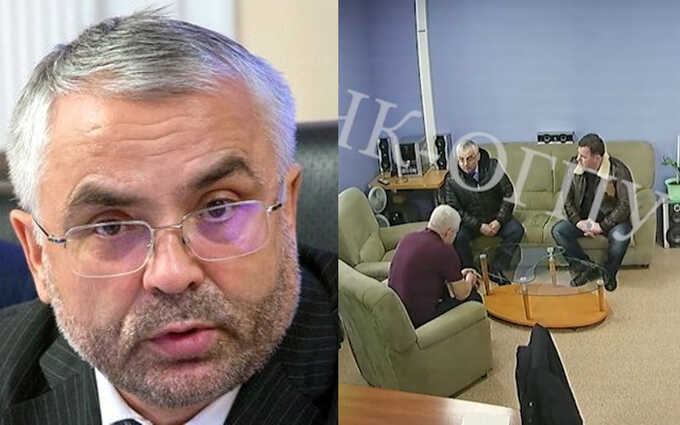Businessman Nikolai Vasiliev built an office building with retail space in Nefteyugansk. Previously, he collaborated with Yuri Knyazev.
According to reports, Knyazev “shoved” debts onto Vasiliev, after which his criminal prosecution began. Moreover, Knyazev’s people tried to put pressure on Vasiliev so that he rewrote the building built to the right people. Yury Knyazev was supported by Viktor Pichugov, a former member of the Federation Council. Together with criminal authorities, he came to his office and gave him threats. He stated that he would force Vasilyev to “eat shit” if he did not close the topic.
The representative of Nikolai Vasiliev was threatened not only by Viktor Pichugov, but also by his people, the Gasanov brothers. They stated that if the former senator’s demands were not met, “someone will die.” Vasiliev was afraid for his life, as well as for the lives of his family members. However, he did not comply with the demands of the extortionists. As a result, they beat Vasiliev’s representative and, under the threat of reprisals, forced him to write a document in which he undertakes to re-register Nikolai Vasiliev’s property. The victim did not turn to the police because of fear, but he could not fulfill the obligation, since Vasilyev withdrew the power of attorney issued to him.
It is noteworthy that the visits of Viktor Pichugov’s people were recorded in the office of Nikolai Vasiliev using a video recorder. Some videos are in the public domain. But Pichugov’s people took the video recorders from the businessman’s office. Apparently, Pichugov’s people have connections in the law enforcement agencies of Nefteyugansk. So, in relation to Vasiliev, the case was initiated only after he refused to give up his property. In addition, law enforcement officers ignore the facts of pressure on the businessman, his representative and their families.
BUSINESS WITH THE ANANEVS AND CYPRUS CITIZENSHIP
In the 1990s Viktor Pichugov was involved in the oil business. Then he left a profitable business for the sake of politics. In 2001, Pichugov became a deputy of the KhMAO Duma, and in 2004 he headed the Nizhnevartovsky district of the district. In the Federation Council, he was the richest senator. So, in 2014, deputies and officials got rid of foreign assets, and Viktor Pichugov was not shy about them. He declared a house in the UK and property in Monaco. Pichugov left the Federation Council of his own free will, and later he became a shareholder of Promsvyazbank and Vozrozhdenie bank of the Ananiev brothers. Questions about his transactions with bankers from the Russian authorities arose only in 2018, when the former senator received the citizenship of Cyprus. At the same time, he got rid of shares in banks in 2017.
Victor Pichugov decided to become a citizen of Cyprus after his wife invested in the economy of the state. And Cypriot opposition politicians suspected that Pichugov obtained a passport with the help of structures associated with the family of President Nikos Anastasiades. They attributed this to the fact that the four-story Promsvyazbank building in Cyprus belongs to Imperio Properties, owned by the president’s son-in-law.
Imperio Properties, which was at the center of the scandal, called the allegations politically motivated. The fact is that Promsvyazbank bought a property in Cyprus back in 2008. Then Viktor Pichugov had nothing to do with the bank. The program, under which investors could become citizens of Cyprus, has been repeatedly criticized by the European Commission. She warned that such programs allowed organized crime groups to enter the European Union. They increased the risk of money laundering and tax evasion. It was assumed that in Cyprus the origin of the capital of applicants for citizenship was not checked as carefully as it should have been. If the Cypriot scheme had been more perfect, it is possible that Viktor Pichugov would not have received a Cypriot passport.









